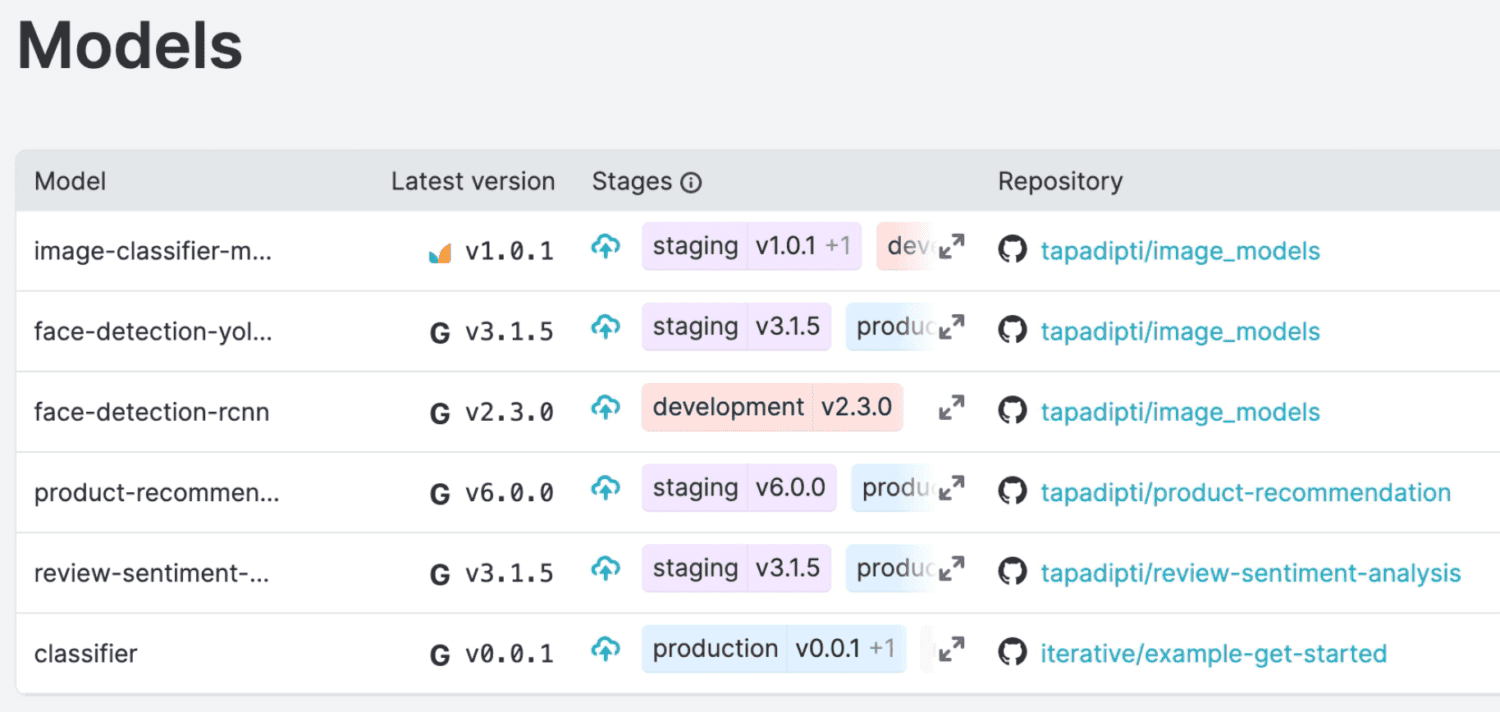Iterative launches Model Registry. The tool helps data scientists maintain an overview of machine learning model statuses and versions.
Iterative develops software tools for data scientists and machine learning (ML) engineers. The latest introduction is Model Registry. The tool maintains an overview of the versions, statuses and changes of ML models. Team members no longer have to manually document where a model is running and how it came to be.
Model Registry is part of Iterative Studio, the complete software suite by Iterative. The solution runs on top of Git, one of the most popular repositories for ML development. Iterative Studio features a dashboard that allows users to deploy models through a visual interface. One of the advantages is that managers without data science expertise can independently accept and deploy model adjustments.

Why?
Every machine learning accrues different versions over time. The versions typically end up in various environments, from staging and development to production. Tracking models, versions and deployments is as important as it is challenging.
Some data scientists use a Google Sheet, but according to ITerative, that’s prone to errors. Others develop a queryable database for direct team members while external developers and operators remain in the dark. “This makes collaboration far more time consuming than it should be”, said Senior Product Engineer Tapa Dipti Sitaula in a blog post.
Iterative Studio Model Registry attempts to solve the problem. The versions, provenance and deployment statuses of models are managed in a central dashboard. Model Registry is available immediately. Most functions are free, but to house an unlimited number of users, you’ll need a paid license.
